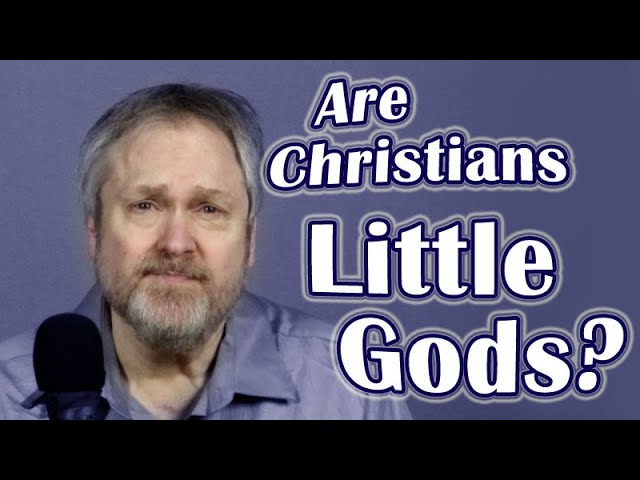The Word of Faith Theology fosters the notion of “little gods,” which has greatly harmed the Pentecostal charismatic church.
Let us begin with Psalm 82, the psalm that Jesus quotes in John 10:34. Elohim is the Hebrew term translated as “gods” in Psalm 82:6. It usually alludes to the one true God, but it has different meanings. The first verse of Psalm 82:1 states, “God presides in the great assembly; he gives judgment among the gods.” The next three verses make it plain that the term “gods” refers to magistrates, judges, and other people in positions of authority and rule. Calling a human magistrate, a “god” implies three things: 1) he has authority over other humans, 2) the power he exercises as a civil magistrate, and 3) he is a divine person, in verse 8 he is pictured as judging the whole earth. This use of the word “gods” to refer to people is uncommon, but it appears elsewhere in the Old Testament. When God sent Moses to Pharaoh, He stated to Moses, “See, I have made you like a god to Pharaoh” (Exodus 7:1).
This simply indicates that Moses, as God’s messenger, was speaking God’s words and thus acting as God’s spokesman to the king. Elohim is translated as “judges” in Exodus 21:6 and 22:8, 9, and 28.
The entire purpose of Psalm 82 is that worldly courts must behave impartially and with true justice, for even judges must come before the Judge someday. Verse 6 and 7 warn human judges that they, too, will be judged:
According to this scripture, God has put persons to positions of control in which they are revered as gods by the populace. They must remember that, despite the fact that they are re-presenting God in this world, they are mortal and must someday account to God for how they used that authority. Now consider how Jesus used this passage. Jesus had recently declared himself to be God’s Son (John 10:25-30). The unbelieving Jews respond by accusing Jesus of blasphemy for claiming to be God (verse 33). Then Jesus reads Psalm 82:6, reminding the Jews that the Law refers to human men, although men of authority and distinction, as “gods.”
Jesus’ argument is that you accuse me of blasphemy because I use the title “Son of God,” while your own Scriptures employ the same phrase to magistrates in general. If people in positions of divine appointment can be called “gods,” how much more can the One whom God has chosen and sent (verses 34-36)? Furthermore, Jesus reminded the Jews of their legal obligations, “Doesn’t it say in your Law that you are gods?” The question is whether we are permitted under the Law of Moses to refer to ourselves as gods. Was Jesus making a doctrinal declaration for the church age?
In contrast, consider the serpent’s deception of Eve in the Garden. His claim that “your eyes will be opened, and you will be like God, knowing good and evil” (Genesis 3:5) was only half true. Their eyes were opened (verse 7), yet they were not transformed into God. They actually lost authority rather than gaining it. Satan misled Eve about her ability to become like the one true God, leading her astray. On biblical and semantic grounds, Jesus defended His claim to be the Son of God—there is a way in which influential persons might be thought of loosely as gods; hence, the Messiah can correctly use the word to Himself. Humans are neither “gods” nor “little gods.” We are not the Almighty. God is God, and those of us who follow Christ are His children.
Which God’s Prophet or Apostle referred to himself as a “little god”? Which Christian in the Bible referred to himself as a god? Why did Paul and Barnabus rip their garments in outrage when they were referred to be regarded as gods? See Chapter 14 of the Acts of the Apostles. Furthermore, was Jesus addressing his disciples in general and labeling them little gods in order for us to emulate him, or was he addressing non-believing Jews??
Dear friends, believers are not gods even when they think through positive confession and they will never be gods or God.
Pastor Kayanja rightly stated that the church has become confused and weak by accepting all sorts of messages by deviating from Pauls’ doctrine. (The Holy Spirit Volume iv in 77 Days of Glory). This is a wakeup call to only interpret the written Word of God aright.
DR. NALOKA BAKER FREDERICK (PhD)
RESEARCH FELLOW.





